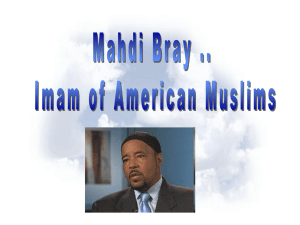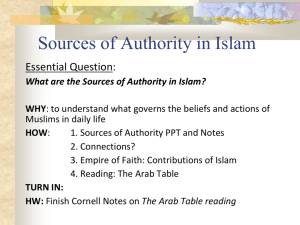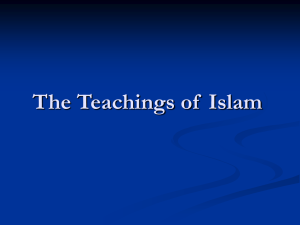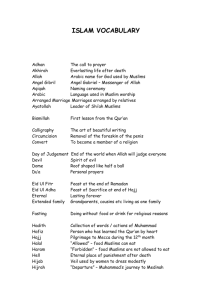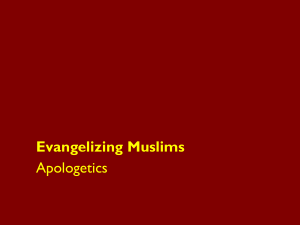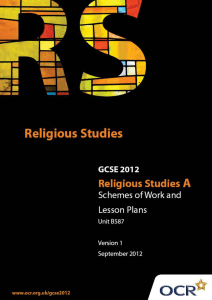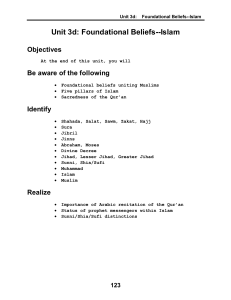Introduction to Islam (Lexi Hilgart)
advertisement
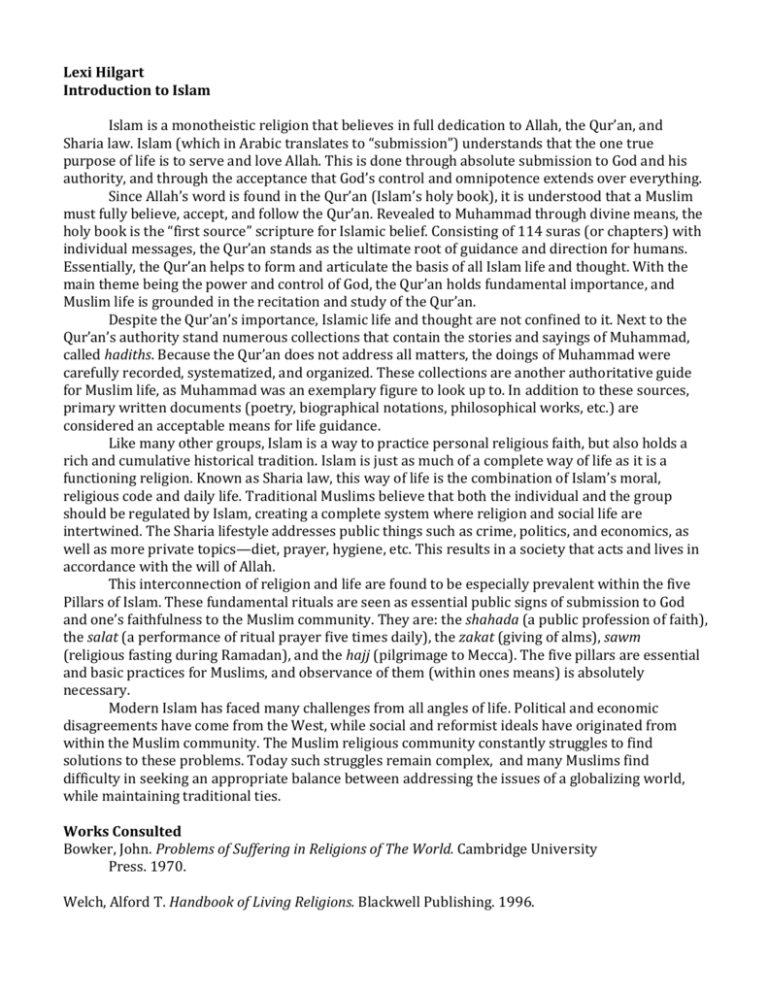
Lexi Hilgart Introduction to Islam Islam is a monotheistic religion that believes in full dedication to Allah, the Qur’an, and Sharia law. Islam (which in Arabic translates to “submission”) understands that the one true purpose of life is to serve and love Allah. This is done through absolute submission to God and his authority, and through the acceptance that God’s control and omnipotence extends over everything. Since Allah’s word is found in the Qur’an (Islam’s holy book), it is understood that a Muslim must fully believe, accept, and follow the Qur’an. Revealed to Muhammad through divine means, the holy book is the “first source” scripture for Islamic belief. Consisting of 114 suras (or chapters) with individual messages, the Qur’an stands as the ultimate root of guidance and direction for humans. Essentially, the Qur’an helps to form and articulate the basis of all Islam life and thought. With the main theme being the power and control of God, the Qur’an holds fundamental importance, and Muslim life is grounded in the recitation and study of the Qur’an. Despite the Qur’an’s importance, Islamic life and thought are not confined to it. Next to the Qur’an’s authority stand numerous collections that contain the stories and sayings of Muhammad, called hadiths. Because the Qur’an does not address all matters, the doings of Muhammad were carefully recorded, systematized, and organized. These collections are another authoritative guide for Muslim life, as Muhammad was an exemplary figure to look up to. In addition to these sources, primary written documents (poetry, biographical notations, philosophical works, etc.) are considered an acceptable means for life guidance. Like many other groups, Islam is a way to practice personal religious faith, but also holds a rich and cumulative historical tradition. Islam is just as much of a complete way of life as it is a functioning religion. Known as Sharia law, this way of life is the combination of Islam’s moral, religious code and daily life. Traditional Muslims believe that both the individual and the group should be regulated by Islam, creating a complete system where religion and social life are intertwined. The Sharia lifestyle addresses public things such as crime, politics, and economics, as well as more private topics—diet, prayer, hygiene, etc. This results in a society that acts and lives in accordance with the will of Allah. This interconnection of religion and life are found to be especially prevalent within the five Pillars of Islam. These fundamental rituals are seen as essential public signs of submission to God and one’s faithfulness to the Muslim community. They are: the shahada (a public profession of faith), the salat (a performance of ritual prayer five times daily), the zakat (giving of alms), sawm (religious fasting during Ramadan), and the hajj (pilgrimage to Mecca). The five pillars are essential and basic practices for Muslims, and observance of them (within ones means) is absolutely necessary. Modern Islam has faced many challenges from all angles of life. Political and economic disagreements have come from the West, while social and reformist ideals have originated from within the Muslim community. The Muslim religious community constantly struggles to find solutions to these problems. Today such struggles remain complex, and many Muslims find difficulty in seeking an appropriate balance between addressing the issues of a globalizing world, while maintaining traditional ties. Works Consulted Bowker, John. Problems of Suffering in Religions of The World. Cambridge University Press. 1970. Welch, Alford T. Handbook of Living Religions. Blackwell Publishing. 1996.


